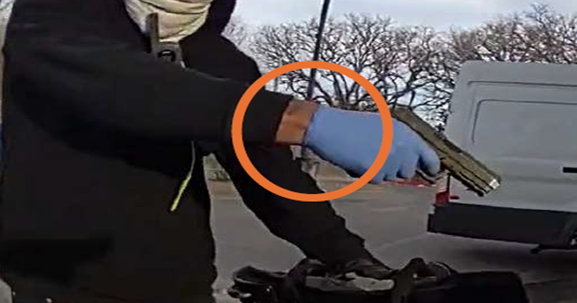FTC Warns About Phone Scam
DALLAS (CBSDFW.COM) - The Federal Trade Commission is warning North Texans about mysterious, and sometimes scary, phone calls. FTC Director Deanya Kueckelhan says hundreds of thousands of people across the country have received the calls from fake debt collectors. The callers know so much personal information, the victims are afraid to ignore them and are eventually persuaded into sending money.
Kueckelhan read some of the complaints the agency has investigated. "One caller told me we just saw you walk into your office building and then listed my address." She says another consumer reported "the callers threatened me and claimed they would arrest me if I didn't pay them the alleged debt."
The FTC says the person on the other end of the line is convincing these consumers they owe money because of an outstanding loan or lawsuit. The FTC estimates thousands of people have sent more than 10-million dollars to the phony debt collectors so far.
"One of the callers even contacted my neighbors and told them he was watching my house." Kueckelhan reads the complaint from another victim who reported her case to the FTC.
At the request of the FTC, a U.S. District Court halted two operations and two individuals who it claims were collecting phantom payday loan debts from consumers. In a criminal indictment, one individual is charged with wire fraud, mail fraud and criminal forfeiture.
Court documents explain how the callers may be convincing vulnerable consumers. The lawsuits say the callers claim to be "lawyers," "federal agents," or "local police officers." They know so much "personal information" about the consumers, it is believable. And, they become so "belligerent" and often use "vulgar language" that victims feel threatened. The FTC says the callers are using "scare tactics."
One North Texan tells CBS 11 his call came from a 757-area code. While the call is from Norfolk, Virginia, the caller claims to be from a business in New York with the same name. The legitimate business is now posting a warning on its website about what it calls a "scam."
The FTC believes the operations are traced to India where criminals are collecting the personal information on consumers from websites. Apparently most of the victims have provided their addresses, bank information, and employment information on payday loan applications they have filled out online.
If someone does call you, you should hang up and call your creditor. Make sure you find out who is authorized to discuss a lawsuit or loan with you.
Also Check Out:







